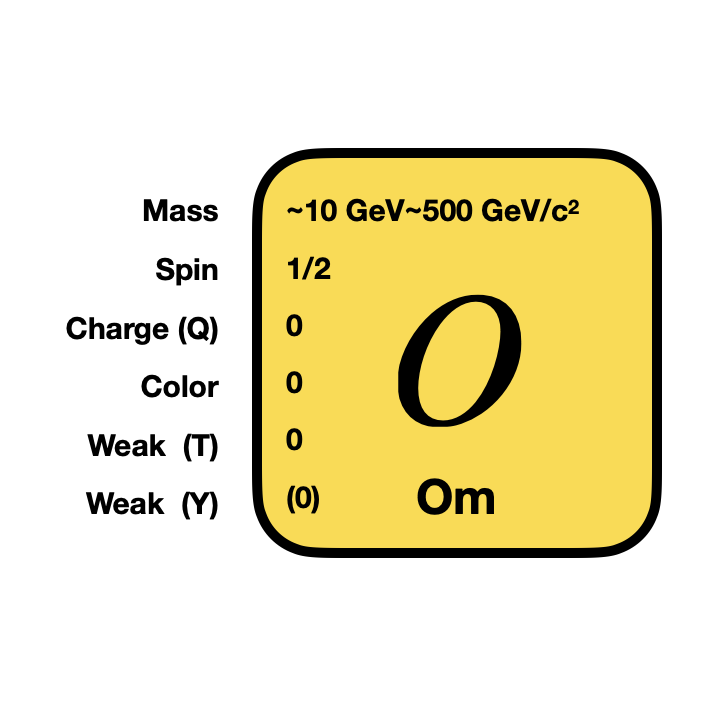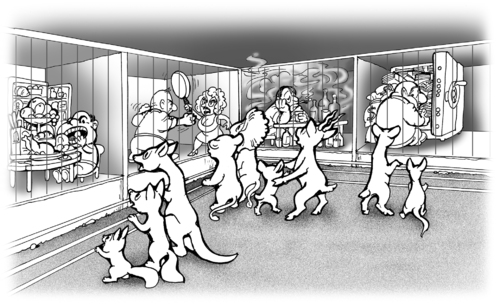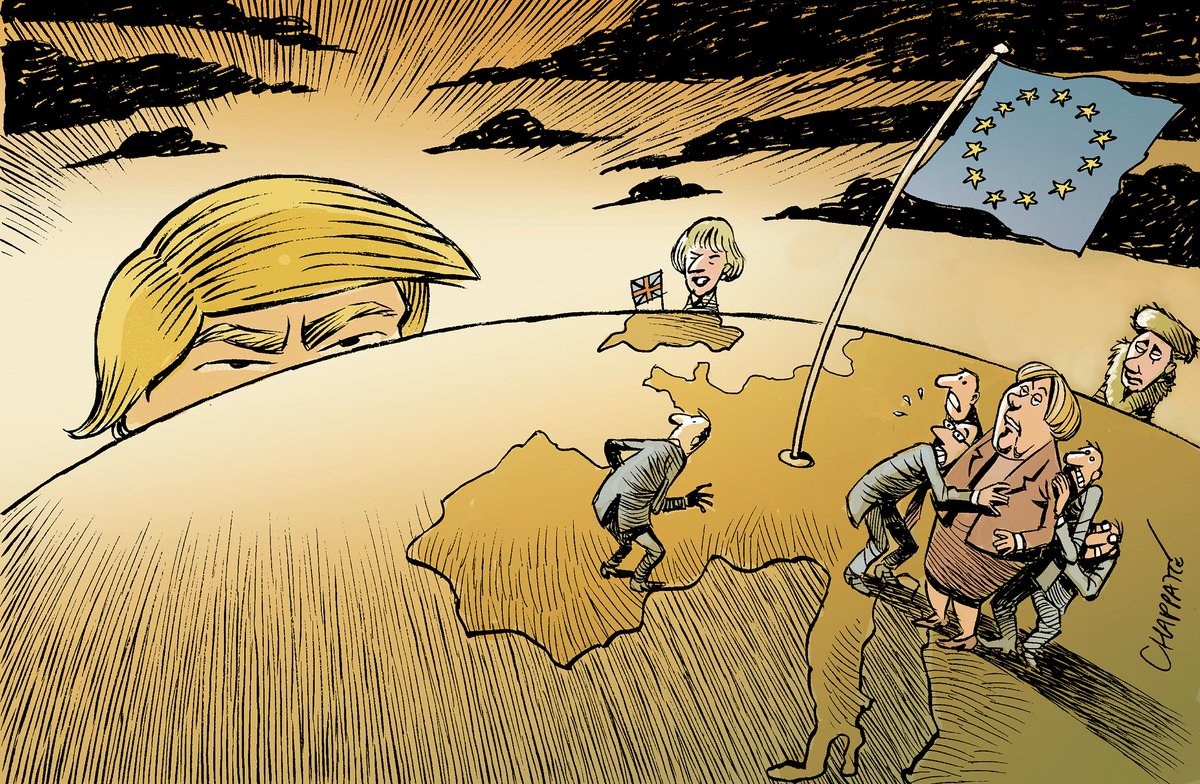Rob's Flash Messages
Rob's Stories
Voting with your wallet
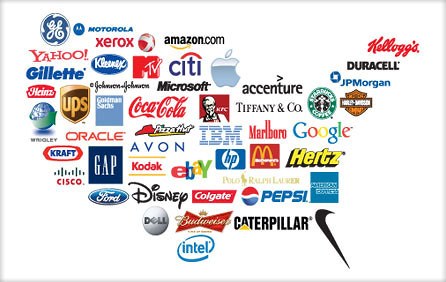 Trump's America and a Brexit UK do not really feel like friends anymore. It's more like the former Eu president Tusk once said: "Who needs enimies when you have friends like this?"
Trump's America and a Brexit UK do not really feel like friends anymore. It's more like the former Eu president Tusk once said: "Who needs enimies when you have friends like this?"
Of course any country can do what it wants, it's just that their allies can also choose to spend their time, energy and (trade)money elsewhere when a relation is seriously jeopardized.
Millions and millions of people are hurt physically, emotionally, economically due to the voting and decisionmaking of two very influencial countries like the US and the UK. Personally, putting all emotions aside, it costs me dearly in stability and growth of my savings due to the turbulance of the stockmarkets as a result of the "moves" of Donald Trump, Nigel Farage and Boris Johnson.
No citizen of any country can vote in a referendum or election of another country. As long we don't have one big federation of states that's probably a good thing. If it would have been possible, it definitely would have felt at least a little bit better knowing that I had a say with a vote.
So some friends asked me how I'm really going to execute in an earlier article mentioned "voting with my wallet". I know the original meaning is somewhat different. Voting with your wallet usually means you vote on a party or candidate which delivers you most money (or cost less). With my definition, it's something else. Since I can't vote in other countries, I can only influence said country by spending more or less depending on my enthousiasm for that country. In thse cases of the US and UK, my enthousiasm has gone below freezing point :).
But given my definition, actually it's a funny question because everybody is doing it all the time. On personal level almost everybody has their preferences. Some men buy only Italian shoes, some women only French fashion. Usually it's driven by any specific emotion, often difficult to trace back where it came from.
On country level it's more clear: if the Russians invade the Krim, we stop buying Russian gas or prohibit selling goods to Russia. If Iran does not stop their nuclear industry, we just isolate them with any kind of trade, in and out. In fact these decisions are often on emotional level too. We hide ourselves behind international laws and rationalize the decisions but basically it's all about self-protection, whether it's about ideals, economy or border battles.
I can understand that American Democrats call out to unite now simply because: they are American! They can not go anywhere (beside a few who are really upset and plan to go to Canada or New Zealand) so they just have to live with it until the next election. It's the consequence of (wrong) voting in a booth.
But at the other side of the fence we can be upset too.
Future transportation
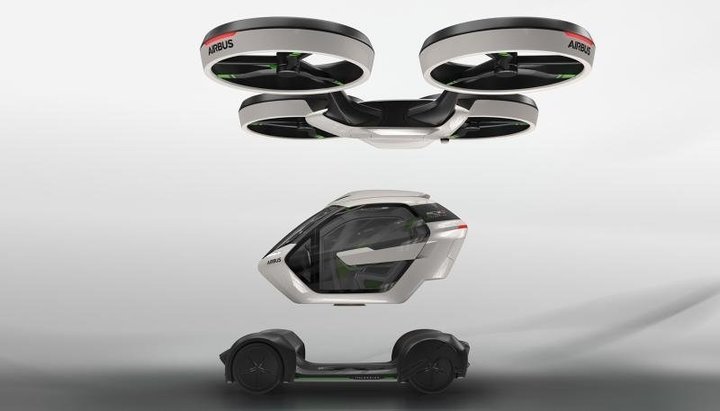 While stuck again in a huge traffic jam on our way to the airport, there was plenty of time to think about that something really has to change in our ways to move ourselves from A to B. Our transport systems for longer than walk or bike travels by train, car or airplane are already 1 or 2 centuries of age without any change except better trains, cars and airplanes. The philosophy and systems remained the same.
While stuck again in a huge traffic jam on our way to the airport, there was plenty of time to think about that something really has to change in our ways to move ourselves from A to B. Our transport systems for longer than walk or bike travels by train, car or airplane are already 1 or 2 centuries of age without any change except better trains, cars and airplanes. The philosophy and systems remained the same.
The main problem is that the infrastructure for this kind of transportation is costly to build and maintain, highly inflexible, a waste of a devastating portion of our environment and economy in terms of time and money. Parked cars all over the place, asphalt and concrete everywhere, long waiting times in traffic, train stations and airports, air pollution and more. It's a long list of concerns we obviously just accept. Additionally the fact that humans are still the drivers of vehicles which nowadays serve as a major killing factor for people and animals and is even used as terrorist weapon, needs to be re-evaluated. Yearly in traffic 1 1/4 million people are killed worldwide and that number will more than triple in the next 15 years.
Elon Musk proposes an alternative for mainly long distance with trains and airplanes with his Hyperloop. Impressive concept and technology but it needs a massive infrastructure change which will be again costly and inflexible. It's comparable to bullet, TGV or Maglev trains and similar, just a few steps beyond.
Mankind in the zoo
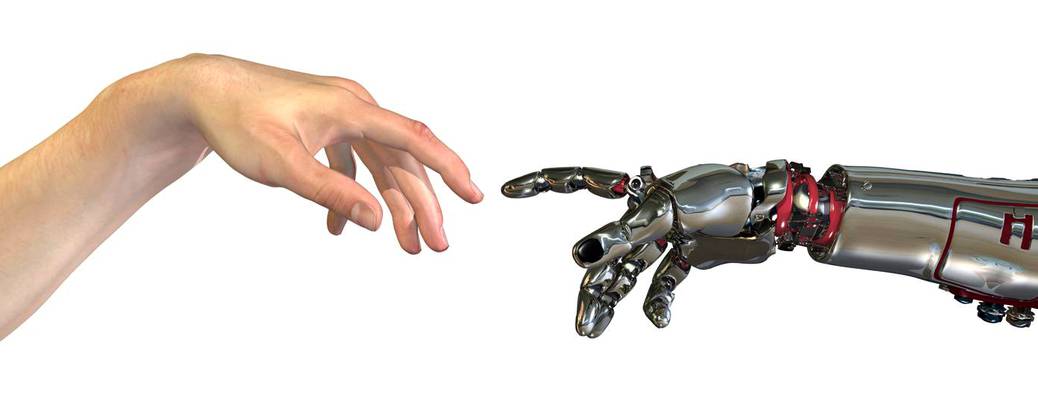 Professor Stephen Hawking and Elon Musk (PayPal, Tesla, SpaceX) among others, recently warned again for the consequences of our own inventions like robots and artificial intelligence (AI). Already a few years ago, Hawking advised mankind to explore space faster to find one or more planets to escape to from the consequences of our own existence. What he obviously meant is that we should put some people as they are today somewhere in a "zoo". The next evolution of mankind could still enjoy the existence of the current one long after it became extinct. The only difference is that we put ourselves in a zoo now as opposed to wait before our successors do that. After all, we are quite convinced that our successors are already knocking at our door.
Professor Stephen Hawking and Elon Musk (PayPal, Tesla, SpaceX) among others, recently warned again for the consequences of our own inventions like robots and artificial intelligence (AI). Already a few years ago, Hawking advised mankind to explore space faster to find one or more planets to escape to from the consequences of our own existence. What he obviously meant is that we should put some people as they are today somewhere in a "zoo". The next evolution of mankind could still enjoy the existence of the current one long after it became extinct. The only difference is that we put ourselves in a zoo now as opposed to wait before our successors do that. After all, we are quite convinced that our successors are already knocking at our door.
Although I do feel sympathy for my own species, I believe it's rather arrogant to believe mankind is the best thing nature can develop or even will develop.
Industrialization
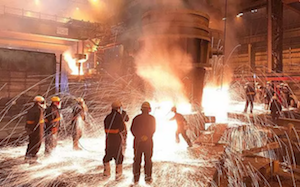 People keep asking me about industrialization with its means and its goals. Where it starts and where it ends. Whether it's a good or a bad thing and of course, what the consequences for our IT profession would be.
People keep asking me about industrialization with its means and its goals. Where it starts and where it ends. Whether it's a good or a bad thing and of course, what the consequences for our IT profession would be.
Well you know, I just have an opinion about it like anyone else so I don't have a clear scientific underpinned definition of true industrialization of IT but I'll give you a few angles to look at it. The first lines on Wikipedia about industrialization start like this: "Industrialization is the period of social and economic change that transforms a human group from an agrarian society into an industrial one. It is a part of a wider modernization process, where social change and economic development are closely related with technological innovation…”
Projected onto my IT-profession, it means that industrialization of IT changes the way we are producing software and delivering IT-services in general from “hand-craftsmanship” towards an automated, outsourced and off-shored production-line. In other words, it changes the delivery model and in some circumstances even the business model dramatically.
Some people might argue that it is mainly about standardization and achieving more efficient, cost-reducing processes to create and sell products or services for a lower price. Well, the answer would be both a yes and a no. Efficiency is just the means but usually not the goal. The money freed by lower-cost production should be re-invested to deliver better and more innovative products or services to the clients. Why? Because unless you want to be the “cheapest-product-seller-of-the-world”, market and competitive distinction will come from continuous innovation of products and services with a decent price to deliver the margin.
Page 3 of 6
